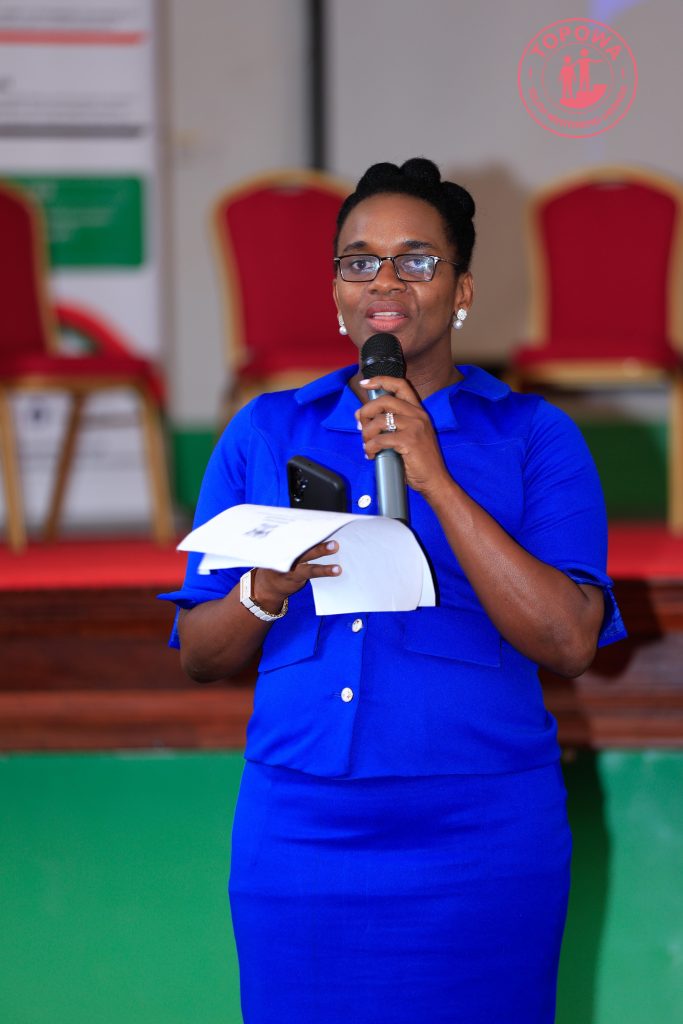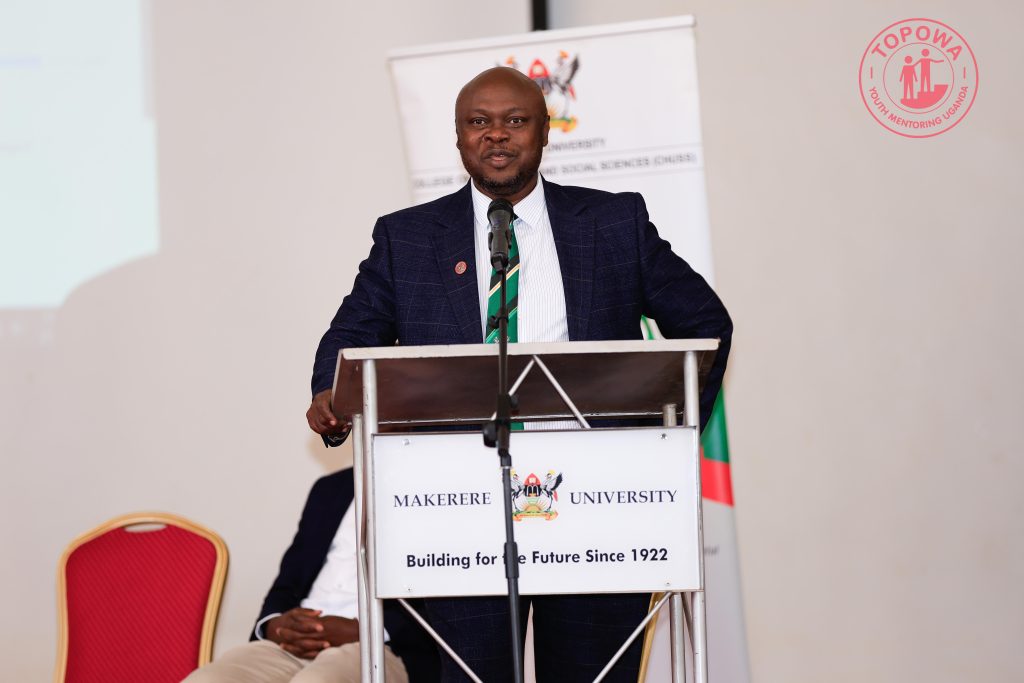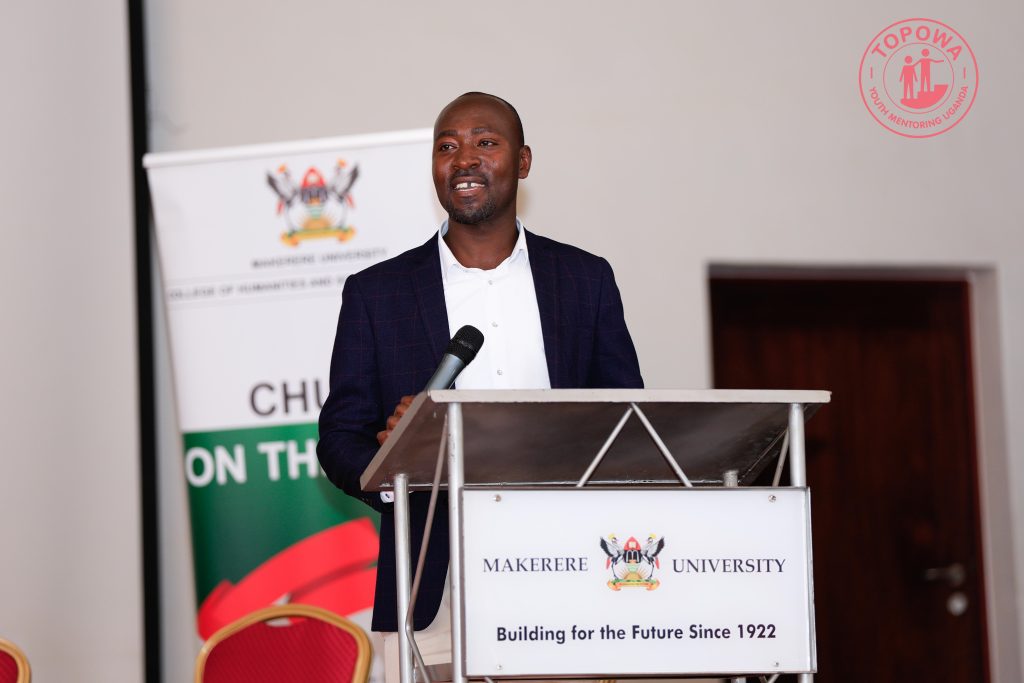Makerere University, Kampala – October 21, 2025
The School of Psychology under the College of Humanities and Social Sciences (CHUSS), Makerere University, held a public lecture on Tuesday to raise awareness about the growing intersection between mental health and addiction among students and young people in Uganda.
The lecture, themed “Understanding the Co-occurrence of Substance, Drug, and Gambling Use and Addiction with Mental Health Issues and Prevention Strategies for Schools and Communities,” brought together university students, secondary school learners, researchers, faculty, and mental health advocates from across the country.
The event held was part of the School’s ongoing efforts to promote dialogue and share research insights with communities as part of Makerere’s broader mission as an “engaged university.”
Parents, Schools and Govt Urged to Curb Rising Substance Use and Gambling Among the Youth
The Assistant Commissioner for Mental Health and Control of Substance Use at the Ministry of Health, Dr. Hafsa Lukwata Ssentongo, called on parents, schools, and communities to take deliberate action in addressing the growing co-occurrence of substance abuse, gambling, and mental health challenges among young people.
Speaking as Chief Guest, Dr. Lukwata stressed that Uganda’s youth are increasingly exposed to addictive behaviors at an early age—largely due to weak family guidance, normalization of substance use, and lack of early mental health education.

Childhood and Parenting: The Starting Point of Addiction
Dr. Lukwata underscored that most cases of substance use and gambling begin in childhood.
“The way a child is brought up—the values, the examples they see, and what they are allowed to do—has a lasting impact on their life decisions and coping skills,” she explained.
She warned that when children grow up in homes where drinking, smoking, or gambling are normalized, they are more likely to adopt similar behaviors later in life.
“Our children are growing up seeing gambling and alcohol use everywhere. It is being normalized. Parents drink openly without fear or restraint, and this shapes what young minds see as normal,” Dr. Lukwata cautioned.
She appealed to parents to be conscious of their influence:
“You are an influencer whether you know it or not. Children learn from what they see, not what they are told.”
Mental Health vs. Mental Illness: Know the Difference
Dr. Lukwata clarified a common misconception—confusing mental health with mental illness.
“We all have mental health. It is the part of your overall health that determines how you think, feel, and act,” she explained.
“Mental illness, on the other hand, is a medical condition characterized by diagnosable disorders like depression, anxiety, or schizophrenia.”

She emphasized that mental health fluctuates daily and can be affected by stress, relationships, or major life events. The inability to cope with stress, she said, often drives individuals toward substance use as a form of self-medication.
“Addiction begins when people fail to cope with the stresses of life. Instead of seeking support or healthy outlets, they turn to alcohol, cannabis, or vaping,” she said.
Government’s Role: Prevention, Awareness, and Regulation
Dr. Lukwata revealed that the Ministry of Health is prioritizing awareness creation and prevention, targeting schools and communities to sensitize youth about the dangers of substance use.
“Knowledge is power. When people know better, they make better choices,” she noted.
She also decried Uganda’s rising alcohol consumption levels, stating that the country ranks among the highest alcohol consumers in Africa.
“It is shameful that we are leading Africa in alcohol consumption. This is not a statistic to be proud of,” she said, adding that the revenue from alcohol taxation cannot compensate for the public health and productivity losses it causes.
The Ministry, she added, is pushing for stricter regulation, including reducing drinking hours, increasing taxes on alcoholic products, and enforcing existing laws such as the Tobacco Control Act, the Narcotics and Psychotropic Substances Act, and the Gambling and Gaming Act.
“We cannot allow drinking from 7 a.m. to 7 a.m. the next day. That is not right. It leads to loss of productivity and broken families,” she emphasized.
Call to Universities and Young People
Dr. Lukwata challenged institutions of higher learning, starting with Makerere University, to lead a youth-focused campaign against substance use and gambling.
“Universities are role models. If Makerere takes the lead, other universities will follow, and the ripple effect will reach high schools,” she said.
She urged students to act as ambassadors for mental health awareness, noting that early intervention can prevent addiction.

“Research shows that if someone does not use an addictive substance by age 21, their chances of ever using it drop drastically. The brain is still developing at 18—there is no science supporting that as a safe age,” she remarked.
Appeal to Families and Communities
Dr. Lukwata made an impassioned appeal to families to rebuild a culture of positive parenting and community responsibility.
“Families, families, families—this is where it all begins,” she said. “We lost it somewhere along the way. Let us raise a generation that is aware, disciplined, and mentally strong.”
She concluded by urging the audience to become ambassadors of change, using their voices to raise awareness in schools, churches, media, and homes.
“If even 30 percent of you here go out and talk about this, we will make progress. Let us all work together to protect the next generation.”
Assoc. Prof. Eric Awich Ochen: Makerere Promotes Women’s Leadership and Mental Health Research
Representing the College Principal, Assoc. Prof. Eric Awich Ochen, the Deputy Principal of CHUSS, welcomed participants on behalf of the Principal, Prof. Helen Nambalirwa Nkabala, and commended the School of Psychology for organizing the timely engagement.
He described Makerere as Uganda’s premier and most prominent university in sub-Saharan Africa, noting that its ranking and visibility continue to rise globally. “Makerere University is not only the main university in Uganda but one of the most prominent in Africa and perhaps the world,” he said.

Assoc. Prof. Awich used the occasion to highlight Makerere’s growing record in promoting women’s leadership. “I am happy to note that the biggest college in the university is led by a woman, Professor Ellen Nkabala,” he said, adding that other schools under CHUSS, including the School of Languages, Literature and Communication led by Prof. Saudah Namyalo, the School of Liberal and Performing Arts led by Dr. Pamela Khanakwa, and the Institute of Gender and Development Studies under Prof. Ruth Nsibirano, are also headed by women.
He further noted that more than half of the departments under the College are led by female scholars, and at the university level, Makerere recently appointed its second female Deputy Vice Chancellor, Prof. Sarah Ssali, to head Academic Affairs.
“This is to encourage our female students who are here today that there are opportunities for women at Makerere and in this country,” he emphasized. “Women play a key role in the leadership and growth of the university.”
Turning to the subject of the day, Assoc. Prof. Awich drew attention to mental health challenges among young people, citing findings from a study he led between 2017 and 2021 under UK government funding. The research, which covered 75 schools across Uganda and engaged over 11,500 pupils aged 10–17, revealed that 30 percent of school-going children were experiencing suicidal ideation, anxiety, or depression.
“These findings are a wake-up call that mental health issues start early and must be handled with sensitivity and urgency,” he said. “Many times, suicides among the youth result from what may seem like simple relational or emotional challenges that could have been managed if they had someone to talk to.”
He lauded the School of Psychology for championing mental health outreach and called for continued community engagement. “Makerere prides itself as an engaged university. We want to reach out to our communities, not to remain an ivory tower,” he stressed. “We must be relevant to our society — socially, economically, psychologically, and emotionally.”
Assoc. Prof. Awich concluded by encouraging students to participate in mental health workshops and open conversations within the college. “Mental health affects all of us at different stages of life,” he said. “These forums are crucial for building resilience and awareness.”
Dr. Martin Baluku: Mental Health is Central to Academic and Personal Success
The Dean of the School of Psychology, Dr. Martin Baluku, underscored the importance of mental health in shaping students’ academic performance, social functioning, and overall well-being.
“Each one of us, at some point, will have a mental health issue — but we hardly think about it,” he said, urging students and staff to deliberately reflect on their emotional health and identify stress triggers.

Dr. Baluku noted that while stress is a normal part of life, it should be managed constructively. “If you are not experiencing any stress, it could mean you are not pushing yourself hard enough,” he remarked. “Healthy stress can be motivating, but when unmanaged, it becomes destructive.”
He likened mental health awareness to physical health checkups, urging people to “do mental check-ins” just as they visit hospitals for other illnesses.
The Dean expressed concern about the rising trend of drug and substance abuse in schools and universities, citing recent research by a Makerere psychologist that found no region in Uganda free from drug use among secondary school students. “Even the innocent faces we see in schools are sometimes silently struggling with drugs and addiction,” he warned.
He challenged the youth to take personal responsibility in helping peers who may be battling addiction. “You may know a friend who uses alcohol or drugs — what are you doing to help that person?” he asked.
According to Dr. Baluku, addiction and mental illness rob society of some of its brightest minds. “Some of the most intelligent students are lost to drugs and addiction. We cannot afford to keep losing them,” he said.
He closed his remarks with a strong call to action: “We cannot achieve health without mental health. Let’s think about our own mental well-being and that of those around us.”
Dr. Racheal Nuwagaba: Linking Classroom Knowledge to Community Action
The lecture convener, Dr. Racheal Nuwagaba, a lecturer in the School of Psychology, said the event was inspired by a desire to bridge academic knowledge with community needs.
“This semester, we teach a course on Addiction Counselling under the Master’s in Counselling Psychology program,” she explained. “We wanted to ensure that the theories we teach in class translate into practical awareness and engagement with communities.”
She emphasized that public lectures like this form part of Makerere’s community engagement and social responsibility mandate. “As a university, we must take information from the so-called ivory tower and share it with the community,” she said.
Dr. Nuwagaba noted that recent research shows that mental health challenges and addiction often co-occur. “In the past, we talked about these issues separately. But evidence now tells us that one can lead to the other,” she explained. “That’s why we are intentional about addressing both together today.”
She invited participants — especially students from secondary schools and other universities — to actively engage in the discussions, reflect on their personal experiences, and think about solutions. “Please feel free to share your views, ask questions, and make new friends,” she encouraged. “Each one of you is important to this conversation.”
About the Event
The public lecture attracted students from Makerere University, Kyambogo University, St. Lawrence University, and several Kampala secondary schools. It forms part of a series of mental health and addiction awareness activities organized by the School of Psychology to promote prevention, early intervention, and psychosocial resilience in schools and communities.

The session featured speeches, panel discussions, interactive discussions, , and reflections aimed at empowering participants to become advocates for mental health awareness in their respective institutions.

